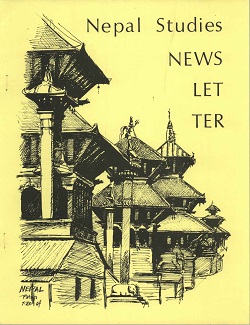Author Biography
Coralynn V. Davis, Associate Professor of Women’s and Gender Studies and Anthropology at Bucknell University, completed her PhD (1999) in Anthropology at the University of Michigan, where she also received a Graduate Certificate in Women's Studies (1994). She has held Research Associateships at the Five College Women's Studies Research Center (2005-2006) and the Women’s Studies in Religion Program at Harvard Divinity School (2008-2009). Her ethnographic research with Maithili-speaking communities in Nepal has been supported by two Fulbright Grants. Professor Davis's scholarship examines issues of women's development and tourism, as well as women's folktales and storytelling practices.
Abstract
Linguistic uses of ‘sisterhood’ provide a window into disparate understandings of relationality among virtual and actual interlocutors in women’s development across vectors of caste, class, ethnicity and nationality. In this essay, I examine the trope of ‘sisterhood’ as it was employed at a women’s development project in Janakpur, Nepal, in the 1990s. I demonstrate that the use of this common signifier of kinship with culturally disparate “signifieds” created a confusion of meaning, and differential readings of the politics of relationality. In my view, ‘sister,’ as used at this project, was a multivalent, strategically deployed, and divergently interpreted term. In particular, for the local participants in the project, use of the term "sister" provided access to a world of status and privileged connection that was part of the very stuff of development, locally articulated. The very same signifier was used by local women to negotiate ambiguous relations of trust, dependency, intimacy, hierarchy, and difference - in such a way that their tactical movements and subtle critique did not put at risk those important social ties.
Acknowledgements
The field research on which this book is primarily based was funded by a Fulbright Dissertation Grant in 1994-1995 and a Senior Research Grant in 2003-2004. I also wish to acknowledge the support I received as a Research Associate at the Five College Women’s Studies Research Center at Mount Holyoke College in South Hadley, Massachusetts in 2005-2006; as well as a Research Associate/Visiting Faculty position in the Women’s Studies in Religion Program at Harvard Divinity School in Cambridge, Massachusetts in 2008-2009. I am thankful, in addition, for financial support provided by the Center for the Studies of Race, Ethnicity and Gender and the Provost’s Office at Bucknell University. In Janakpur, I am deeply indebted to Uma Jha and Dollie Sah and her family. I very much appreciate the careful transcription and translation work on the stories that was carried out in conjunction with me by Smriti Jaiswal and Mita Jha. Finally, I am personally grateful to Missie Pressly and Ojae Michal Beale for their emotional and practical support at different periods in this project, as well as to family, friends and colleagues all along the way.
Creative Commons License

This work is licensed under a Creative Commons Attribution-Noncommercial 3.0 License
Recommended Citation
Davis, Coralynn. 2014. Strategic Deployments of ‘Sisterhood’ and Questions of Solidarity at a Women’s Development Project in Janakpur, Nepal. HIMALAYA 34(1).
Available at:
https://digitalcommons.macalester.edu/himalaya/vol34/iss1/11


